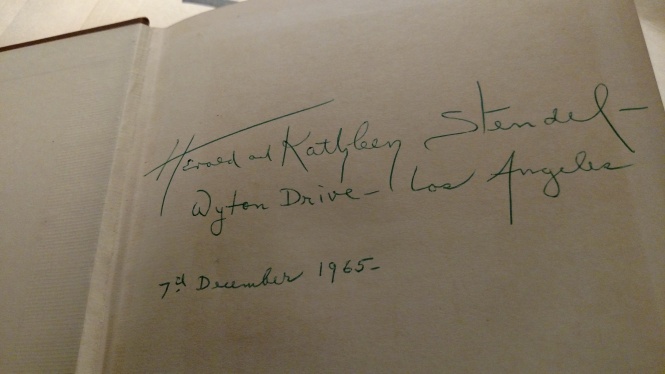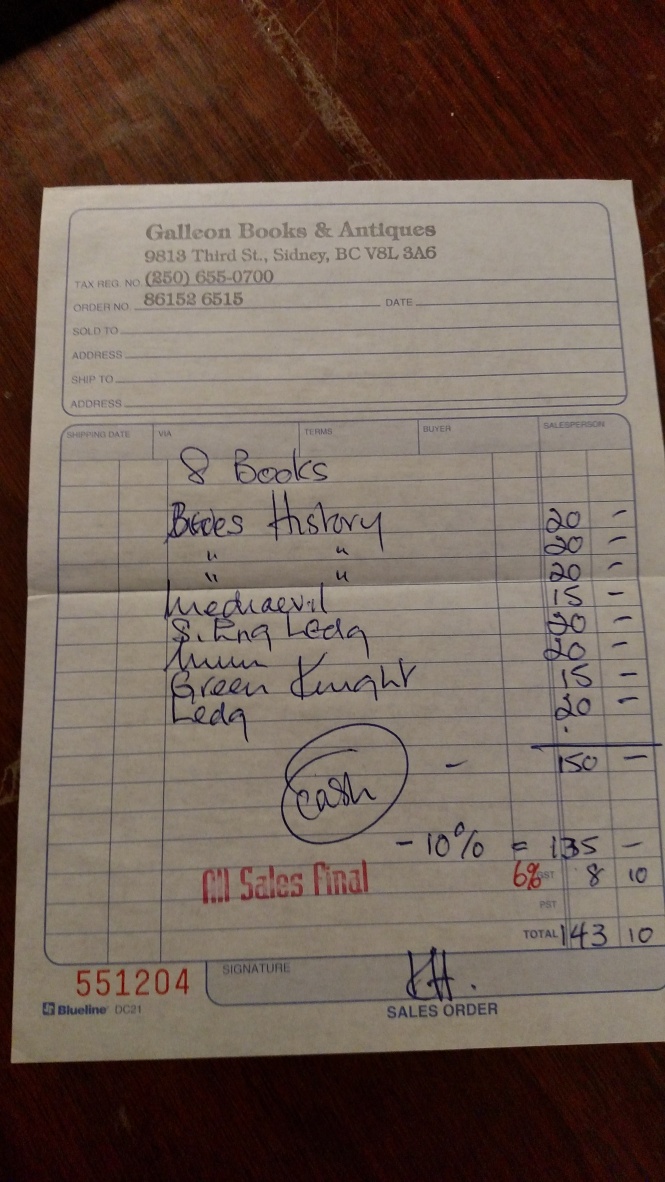So I bought a copy of the Early English Text Society edition of The South English Legendary:
 (Ever notice how you feel smarter already when you buy a book that comes in multiple volumes, the last of which is exclusively notes and commentary?)
(Ever notice how you feel smarter already when you buy a book that comes in multiple volumes, the last of which is exclusively notes and commentary?)
What is even cooler than the book(s) is that the set arrived with its own history tucked inside. The inscription of the original owners:

Okay, fine, I hear you, lot of books have their first (and sometimes subsequent) owners’ names written inside. Tough crowd.
But then there was this:

A letter from the EETS editor, to the original purchaser, and mentioning the Kennedy assassination. Complete with coffee mug stains from either sender or receiver.
And then:
 The bill of sale from when the set was bought used, having somehow made its way to British Columbia from Los Angeles.
The bill of sale from when the set was bought used, having somehow made its way to British Columbia from Los Angeles.
Not to mention the bill of sale I was actually expecting: 
(Close-eyed observers will note that this set had misplaced volume 3, no doubt on the hard trek to British Columbia. I ordered it separately.)
Either the owner(s) have an unusual commitment to history, keeping the sales receipts with the book(s), or this is a book that tends to be purchased more than read.
Weelll, it is a collection of edifying saints’ lives. Make up your own minds. Could go either way.

You must be logged in to post a comment.